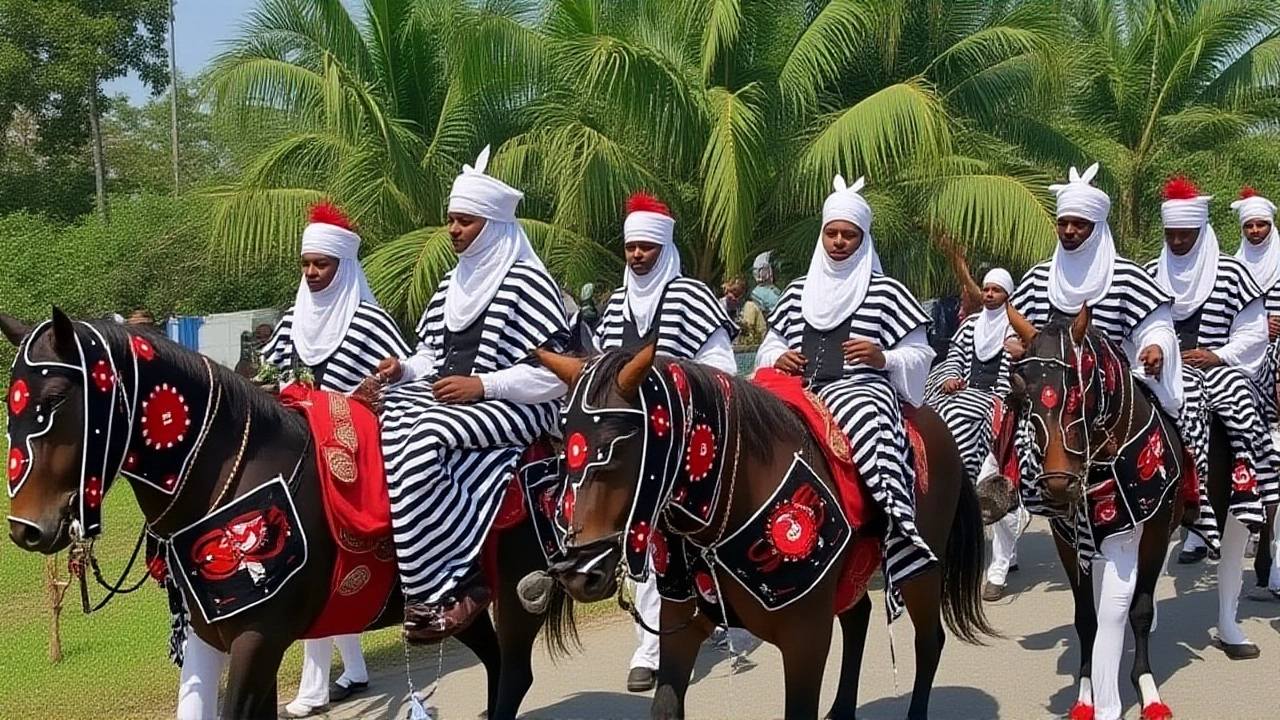Zaria – Your Gateway to News and Culture in Northern Nigeria
When talking about Zaria, a historic city in northern Nigeria known for its bustling markets, academic institutions, and rich cultural tapestry. Also known as Zariyah, it sits at the crossroads of tradition and modern growth, drawing attention from policymakers, students, and travelers alike.
One of the city’s biggest draws is Ahmadu Bello University, Nigeria’s largest university and a hub for research, innovation, and youth activism. The campus influences local economics, fuels a steady flow of ideas, and often sets the agenda for regional debates. Alongside the university, the broader region of Northern Nigeria, a diverse area that shapes language, politics, and trade across the Sahel, plays a pivotal role in defining Zaria’s identity.
What Makes Zaria Unique?
The city’s heritage is deeply rooted in Hausa culture, the dominant ethnic tradition known for its music, fashion, and oral history. From the vibrant colors of the weekly market to the rhythmic beats of traditional drumming, Hausa customs influence daily life and attract cultural tourists. At the same time, Zaria’s strategic location on historic trade routes means it has long been a melting pot for commerce, linking southern markets with the Saharan caravan routes.
From an infrastructure standpoint, Zaria requires reliable utilities and transportation networks to support its growing population and academic community. Recent city plans focus on expanding roadways, improving power supply, and upgrading internet connectivity—steps that directly impact how quickly news spreads and how businesses operate. These developments also affect the way local journalists report on everything from political rallies to university research breakthroughs.
Economic activity in Zaria is heavily tied to agriculture, especially the cultivation of millet, sorghum, and cotton. The city’s farms supply both local markets and export channels, making agricultural policy a hot topic in regional news. When government officials announce subsidies or new trade agreements, the ripple effect touches students, traders, and farmers alike, creating a dynamic news cycle that reflects the interconnected nature of Zaria’s economy.
The political climate in Zaria mirrors broader national trends but retains distinct local flavors. Electoral contests often revolve around issues like education funding, infrastructure projects, and security concerns. Community leaders, including traditional rulers and university professors, frequently weigh in, shaping public opinion and influencing voter turnout. This blend of grassroots activism and formal politics generates a steady stream of stories that keep residents informed and engaged.
Sports also play a big role in city life. Local football clubs, school competitions, and university leagues bring together fans from all walks of life. When a team from Zaria scores a win, the celebration spills into the streets, and local media captures the excitement, cementing sports as a vital element of community identity.
Technology adoption is rising fast, especially among the student body at Ahmadu Bello University. Mobile apps, social media platforms, and digital newsrooms enable real‑time reporting on campus events, protests, and academic achievements. This digital shift means that Zaria’s news ecosystem is becoming more interactive, allowing readers to comment, share, and even contribute stories from their own neighborhoods.
Security remains a top priority, with local law enforcement collaborating with federal agencies to address challenges such as banditry and cross‑border crime. When security initiatives succeed, they often become headline material, highlighting the city’s resilience and the effectiveness of community policing.
Education extends beyond the university walls. Primary and secondary schools across Zaria are part of national reforms aimed at improving literacy rates and STEM participation. When new curricula are rolled out or teacher training programs launch, they quickly become newsworthy topics, reflecting the city’s commitment to nurturing the next generation.
The cultural calendar is packed with festivals, religious celebrations, and art exhibitions. Events like the Zaria Cultural Festival showcase traditional crafts, music, and dance, drawing visitors from across the country. Coverage of these events helps preserve heritage while promoting tourism, illustrating how culture and economy intertwine.
In summary, Zaria is a microcosm of northern Nigerian life—rich in history, vibrant in culture, and forward‑looking in education and technology. Below you’ll find a curated list of recent stories that touch on everything from university research breakthroughs to market trends, political developments, and cultural celebrations. Dive in to see how this dynamic city continues to shape—and be shaped by—the world around it.

ABU Zaria’s 2025 Cultural Carnival Unites Students in a Vibrant Celebration
Oct 6, 2025 / 11 Comments
Ahmadu Bello University in Zaria hosted the 2025 Students' Cultural Carnival, uniting thousands of students in a vibrant showcase of Nigeria's diverse traditions and sparking calls for similar events nationwide.
READ MORERECENT POSTS
- Mile Svilar Stresses the Urgency for Roma to Secure Victories Ahead of Lecce Clash
- Chelsea vs Wrexham: Pre-season Friendly Ends in Thrilling Draw
- Botswana's Election 2023: A Closer Look at the Ruling Party's 6-Decade Grip on Power
- DNC Boosts State Parties as Harris Raises $200 Million: Strategic Investments to Strengthen Democratic Stronghold
- PENGASSAN vows to clash with oil firms over expatriate hires
